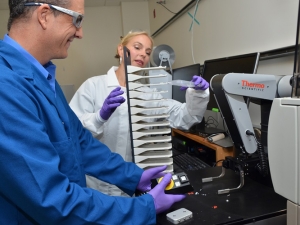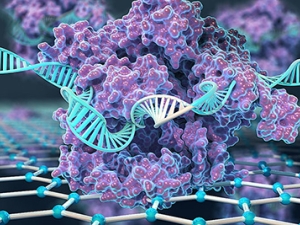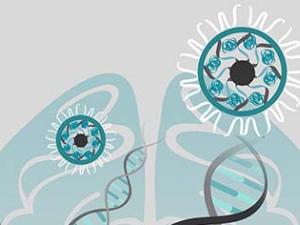

Research Bio
The Murthy laboratory is focused on developing new materials for drug delivery and molecular imaging.
Research Expertise and Interest
molecular imaging, drug delivery
In the News
Four Innovative Faculty Members Awarded Campus’s 2022 Bakar Prize
Four UC Berkeley faculty members, whose technological innovations promise to deliver solutions to some of the world’s most pressing problems, have been awarded the Bakar Fellows Program 2022 Bakar Prize.
A New Test Can See -- Almost Literally -- Infectious Bacteria
Up to 20 percent of UTIs are caused by a particularly resistant microbe known as ESBL-producing bacteria. These infections do not respond to the standard antibiotic treatment. With support as a 2019-2020 Bakar Fellow Niren Murthy, professor of bioengineering, and colleagues have developed a 30-minute, low-tech test, called DETECT, to identify ESBL-producing bacteria on a patient’s first visit to the doctor.
Scientists pivot to COVID-19 research, hoping for quick results to deal with pandemic
Thanks to a rapid funding program thrown together by wealthy entrepreneurs barely six weeks ago, seven COVID-19 research projects at the University of California, Berkeley, are getting an infusion of cash — $2.2 million in all — that could turn up new diagnostics and potential treatments for the infection within months.
Seven new Bakar Fellows already are making an impact
Seven University of California, Berkeley, faculty scientists with novel ideas and an entrepreneurial spirit have been named to the 2019-20 cohort of Bakar Fellows, an honor that gives the fellows the money and time to translate their laboratory breakthroughs into technologies ready for the marketplace.
New CRISPR-powered device detects genetic mutations in minutes
A team of engineers at the UC Berkeley and the Keck Graduate Institute (KGI) of The Claremont Colleges combined CRISPR with electronic transistors made from graphene to create a new hand-held device that can detect specific genetic mutations in a matter of minutes.
New test rapidly identifies antibiotic-resistant ‘superbugs’
The technique could help doctors prescribe the right antibiotics fast.
CRISPR reduces autism symptoms in mice
Scientists have used CRISPR-Cas9 gene editing to lessen some autism symptoms in mice with a form of fragile X syndrome, the most common known single-gene cause of autism spectrum disorder.
Loading Class list ...







